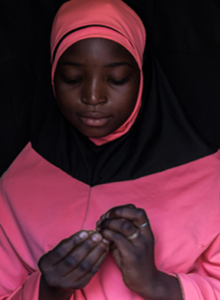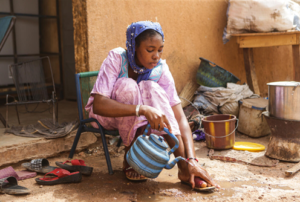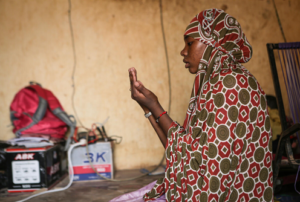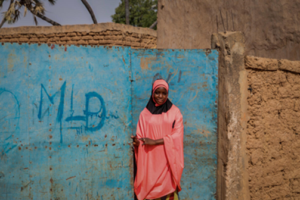Broken dreams: Girls living on the frontline of Africa’s new war
“Before the conflict, we were at peace, no one was afraid. Today, everyone is afraid.”

The Sahel sits below the Sahara desert, extending across the entire African continent. In the middle of this area is Burkina Faso, Mali, and Niger, countries facing escalating armed conflict, displacement, hunger, and poverty.
Now, the consequences of the pandemic have led to the greatest education emergency in history, with girls withstanding the worst of this crisis.
National photographers Seyba Keita, Apsatou Bagaya, and Adrien Bitibaly travelled across Mali, Niger, and Burkina Faso to document the inspiring stories of girls living through war and the challenges they face. The images capture the stories of loss and pain and strength, resilience, and hope for the future.
Burkina Faso, Mali and Niger in the Central Sahel are at the epicenter of the girl’s education crisis. Over 4000 schools were shut down due attacks from armed groups in 2020 alone. In Niger and Mali, more than half of the girls enrolled in primary school do not follow through to secondary education. In Burkina Faso, only 1% of girls have completed secondary school. [4]
All three have some of the highest rates of child marriage in the world with Niger ranked the highest where a third of children are married before 15 and three quarters by the age of 18.[5] The region is home to some 20 million child brides, and 95 percent of married adolescent girls in the Sahel are not attending school.[6]
In Niger, 12-year-old Dioura*, was forced from her home when armed insurgents attacked her village. Her school was set ablaze during the fighting and she now lives in a camp for the internally displaced with her family.
 Life in the camps is hard and food is difficult to come by, both Dioura’s parents are out of work and she sometimes has to go to bed on an empty stomach. However, she is now back in school and wants to study to help others, “I would like to become a doctor when I finish my studies” she says.
Life in the camps is hard and food is difficult to come by, both Dioura’s parents are out of work and she sometimes has to go to bed on an empty stomach. However, she is now back in school and wants to study to help others, “I would like to become a doctor when I finish my studies” she says.
14-year-old Kadidia* in Mali fled from her village after the schools were closed by armed groups, leaving the rest of her family behind. She now lives with her auntie so that she can continue her education despite the conflict.
She says, “There was a school in our village. The school closed when people took up arms. That’s why I came here to study. School is important for girls. When you’re educated, you have knowledge”
“The difficulty faced by girls, especially in villages, is that when you become a teenager, it’s deemed absolutely necessary to be married.”
Each of the girls have been supported by Save the Children and the EU’s landmark programme in response to the Sahel Crisis to tackle the education, protection and mental health needs of 200,000 children across Mali, Niger and Burkina Faso.
 To tackle the biggest education emergency of our lifetime, G7 leaders and other governments must make an ambitious pledge to the Global Partnership for Education of $5 billion for the next five years and urgently work towards making COVID-19 vaccination coverage truly global. In addition, national governments must increase education budgets with clear roadmaps to bring all children safely back to school when the time is right, and improve their education.
To tackle the biggest education emergency of our lifetime, G7 leaders and other governments must make an ambitious pledge to the Global Partnership for Education of $5 billion for the next five years and urgently work towards making COVID-19 vaccination coverage truly global. In addition, national governments must increase education budgets with clear roadmaps to bring all children safely back to school when the time is right, and improve their education.
[4] https://reliefweb.int/report/burkina-faso/sahel-working-toward-inclusive-education-girls-disabilities
[5] https://atlas.girlsnotbrides.org/map/
[6] https://data.unicef.org/resources/child-marriage-in-the-sahel-brochure/


